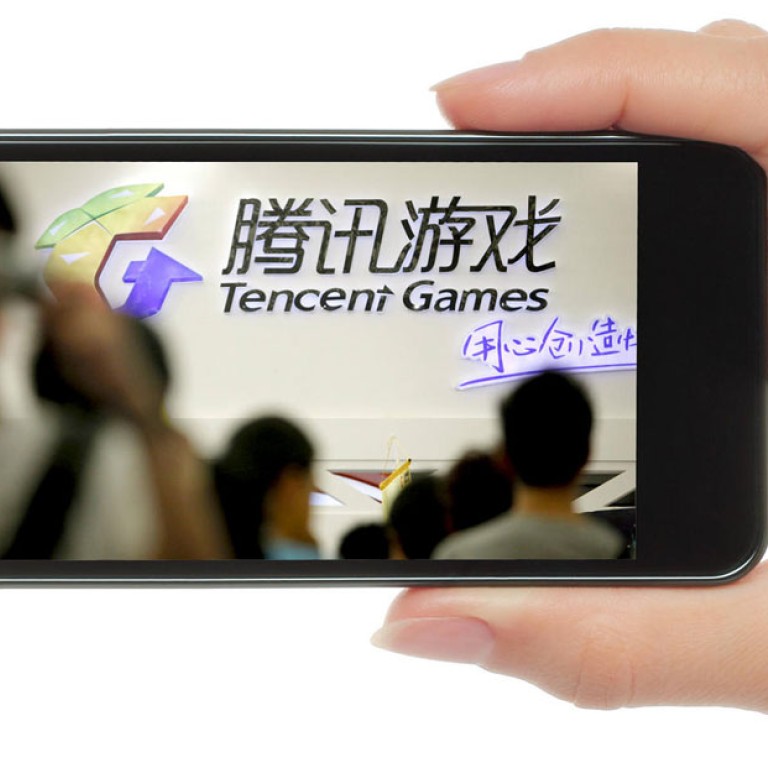
Tencent poised to become China's mobile gaming juggernaut
Internet giant Tencent is set to become the mainland's biggest mobile gaming company after just releasing five in-house-developed apps
If there were any doubts about Tencent's success in developing its mobile gaming business, they were cast aside after the company reported last month about 570 million registered users for its initial batch of smartphone-based games.

Each of those games jumped into the top-three ranking of mobile games on the mainland upon release and continued to rank among the top 25 in the domestic market, according to a report by Barclays this week. The games include Timi Match Everyday and Rhythm Master.
Tencent, the mainland's leading developer and operator of online games for desktop personal computers, is now set to become the biggest mobile games company in the world's largest smartphone market.
Alicia Yap, head of China internet research at Barclays, said in the report: "We believe Tencent is best-positioned to leverage the shift in traffic from PC gaming to mobile gaming."
She said the company's experience in running a strong online games business, as well as the wide adoption of Mobile QQ and WeChat, would serve it well in developing its mobile games user base.
Internet consultancy iResearch has forecast the mobile games market on the mainland to be worth 25.8 billion yuan (HK$32.6 billion) by 2016, up from an estimated 11.6 billion yuan this year. That would represent a three-year compound annual growth rate of 31 per cent.
The rise of paid-for mobile games on the mainland has been credited to wider smartphone penetration in the lower-tier cities, driven by lower entry-level prices for these handsets and improved data network connections nationwide.
According to iResearch, smartphone-based games would grow to 69 per cent of the mainland's total mobile games market in 2016 from 41 per cent this year.

The mobile games sector is highly fragmented, with smaller, independent and private studios making up most of the market.
"We expect the [mobile games] market to gradually consolidate as more established PC-based online gaming companies begin [their mobile] development," Yap said.
"Tencent will likely become the largest mobile games publisher in China."
But there is still plenty of work ahead for Hong Kong-listed Tencent. Data from iMedia Research showed the company held just an 8.7 per cent share of the mainland's mobile games market.
Pony Ma Huateng, Tencent's chairman and chief executive, said in October the company planned to build on the momentum it achieved last quarter.
Tencent's average monthly active users on Mobile QQ and WeChat reached 272 million in the third quarter.
"We will expand our smartphone game portfolio for Mobile QQ and Weixin [the domestic brand name for WeChat] with both self-developed and third-party games," Ma said.
Yap said Tencent management viewed the launch of proprietary mobile games titles "as a means to test user behaviour" on the two platforms. Longer term, third-party games are expected to dominate Tencent's mobile games portfolio.
"We believe Tencent will start to promote more aggressively its own mobile applications store as a distribution channel for third-party games," Yap said.
Barclays said mobile games on the mainland have been easier to distribute directly or through a publisher on Apple's online App Store.
By comparison, there are various third-party stores that game developers must work with to sell their products to Android-based smartphone users.

